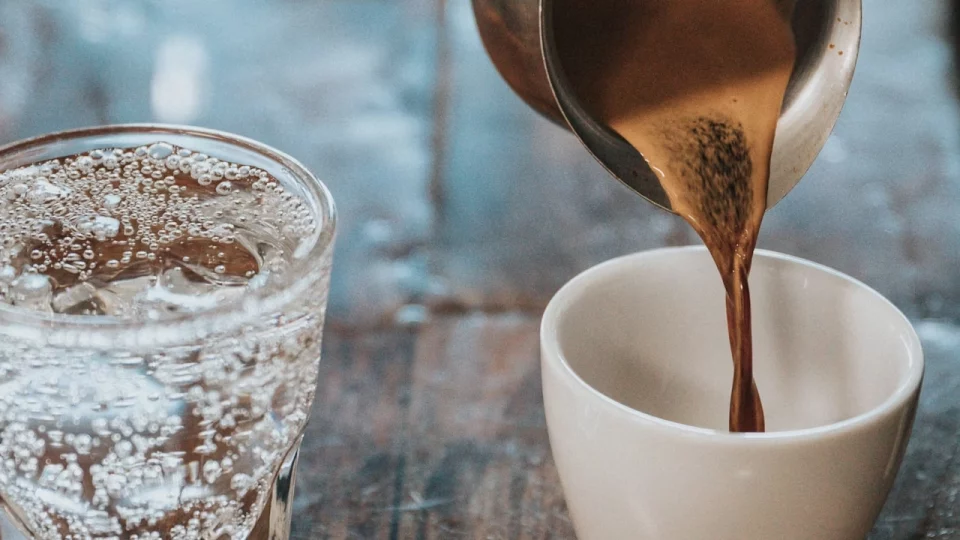Hangovers have long been the dreaded consequence of a night of indulgence, a condition so unpleasant it’s spawned countless theories and remedies.
For many, the morning after drinking instinctively begins with a cup of coffee. After all, it’s the go-to elixir for waking up groggy minds and jumpstarting our day.
But does coffee actually help cure a hangover? Or could it be making things worse?
Table of Contents
What Causes a Hangover?
To understand whether coffee is the right remedy, it’s important to first explore what a hangover really is. Hangovers result from the combination of dehydration, inflammation, and the toxic effects of alcohol on your body.
- Dehydration: Alcohol is a diuretic, meaning it causes your body to lose more fluids than you take in. This leads to dehydration, one of the main culprits behind symptoms like headaches, dry mouth, and fatigue.
- Gastrointestinal Irritation: Alcohol irritates the lining of your stomach and increases stomach acid production, contributing to nausea, vomiting, and overall digestive discomfort.
- Toxic Byproducts: When your liver metabolizes alcohol, it produces acetaldehyde, a toxic compound. Acetaldehyde buildup can lead to inflammation and worsen hangover symptoms.
- Electrolyte Imbalance: Alcohol disrupts your body’s balance of essential electrolytes like sodium, potassium, and magnesium, leading to fatigue, muscle cramps, and cognitive fog.
- Sleep Disruption: While alcohol may help you fall asleep, it disrupts REM sleep and overall sleep quality, leaving you feeling unrested the next day.
With this in mind, the “cure” for a hangover typically involves rehydration, replenishing lost nutrients, and giving your body time to recover.
Check also: Drinking More Coffee in 2025 Could Be Your Healthiest Resolution Yet
Does Coffee Help a Hangover?
Coffee—a beloved morning ritual for millions—can feel like a natural solution for battling hangover fatigue. However, the relationship between coffee and hangovers is far from straightforward. Here’s a breakdown of the key effects of coffee on hangover symptoms:
Temporary Energy Boost
The caffeine in coffee is a stimulant that temporarily increases alertness and energy levels by blocking adenosine, a neurotransmitter that makes you feel drowsy. While this can counteract the grogginess of a hangover, it’s a short-lived fix. As the caffeine wears off, you may experience a “crash,” leaving you feeling even more fatigued than before.
Dehydration Worsens
Coffee is a mild diuretic, meaning it increases urine production. Given that alcohol has already dehydrated your body, drinking coffee can exacerbate dehydration, worsening symptoms like headaches and dry mouth. While the diuretic effect of coffee is less pronounced in habitual coffee drinkers, it’s still a factor to consider.
Exacerbation of Headaches
Caffeine can temporarily constrict blood vessels, which may initially relieve headache pain. However, as the caffeine wears off, the blood vessels dilate again, potentially worsening headaches. If you’re prone to migraines or alcohol-induced headaches, coffee may not be your best ally.
Digestive Upset
Drinking coffee on an empty stomach—a common scenario for people nursing hangovers—can increase stomach acid production and irritate the gastrointestinal lining. This can worsen nausea, acid reflux, and stomach discomfort, common hangover symptoms.
Anxiety and “Hangxiety”
Hangover anxiety, or “hangxiety,” is a phenomenon where people feel heightened worry, stress, or guilt the day after drinking. Coffee, as a stimulant, can amplify these feelings by increasing heart rate, blood pressure, and nervous system activity. If you’re prone to feeling jittery or anxious, coffee might make your hangover worse rather than better.
The Double-Edged Sword of Caffeine Withdrawal
If you’re a regular coffee drinker, skipping your usual morning cup can lead to caffeine withdrawal symptoms, including headaches, fatigue, and irritability. For some, these withdrawal symptoms can compound the misery of a hangover. In such cases, drinking a smaller-than-usual amount of coffee may help mitigate withdrawal without worsening dehydration or other hangover symptoms.
